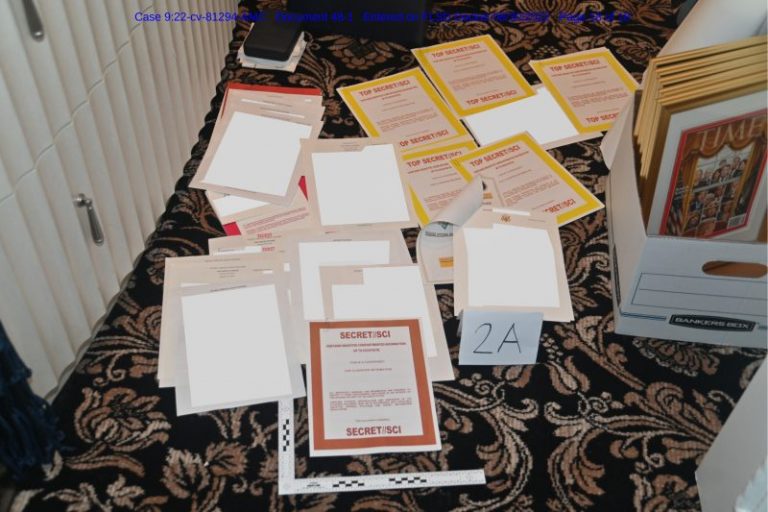A federal judge on Friday declined to hold former president Donald Trump’s office in contempt for not fully complying with a May subpoena to return all classified documents in his possession, according to people familiar with the proceedings.
U.S. District Judge Beryl A. Howell told Justice Department lawyers and Trump’s legal team to come to an agreement themselves over what actions or assurances by Trump’s office would satisfy the government, according to these people, who spoke on the condition of anonymity to describe sealed court proceedings.
“The President and his counsel will continue to be transparent and cooperative,” Trump spokesperson Steven Cheung said in a statement to The Washington Post.
A Justice Department spokesman declined to comment.
The hearing punctuated months of mounting Justice Department frustration with Trump’s legal team after attorneys provided assurances that a diligent search had been conducted for classified documents at the former president’s Mar-a-Lago residence and private club.
They made that claim when handing over 38 documents to the Justice Department in response to the grand jury subpoena. But the FBI later amassed evidence suggesting that more classified material remained at Mar-a-Lago.
The Justice Department secured a warrant, and FBI agents searched Mar-a-Lago on Aug. 8, retrieving some 13,000 additional documents, about 100 of them classified. The department is investigating the potential mishandling of classified material, destruction of government property or obstruction of the investigation.
One of the central areas of disagreement between the two sides has centered on the Trump legal team’s repeated refusal to designate a custodian of records to sign a document attesting that all classified materials have been returned to the federal government, The Post first reported earlier this week.
The standoff led to the Justice Department’s request to hold Trump’s office in contempt.
A media coalition that included The Post sought unsuccessfully to open Friday’s hearing, arguing to Howell that grand jury secrecy rules should not apply to the proceedings, given extensive public litigation between Trump and the government over the Mar-a-Lago search in federal courts in Florida and significant reporting about the underlying subpoena, as well as the principle that court proceedings should be public.
“The First Amendment and common law rights of access to judicial proceedings oblige the Court to provide public access to the hearing and seal only those narrow portions that implicate still-secret grand jury material,” wrote Ballard Spahr law firm attorneys Charles D. Tobin and Maxwell S. Mishkin, who were representing the news-organization coalition.
Attorneys for media organizations said they would continue to seek the unsealing of materials given the public importance, including any redacted opinion, hearing transcript or related filings from each side. In a statement, a court spokeswoman said only: “This afternoon, the Court held a hearing regarding an ongoing and sealed grand jury matter. This matter remains under seal” pursuant to grand jury secrecy rules.
Howell and several previous chief judges in Washington have released grand jury materials in cases of historical and public importance, such as the Watergate investigation that led to President Richard M. Nixon’s resignation and, more recently, in the Trump-Russia special-counsel investigation and a Justice Department demand for records from three large Chinese banks in a sanctions investigation.
But the U.S. Court of Appeals for the District of Columbia Circuit in April 2019 struck down judges’ “inherent authority” to release such materials when the public interest outweighs the need for secrecy. After that opinion, in McKeever v. Barr, Howell denied another media request, writing that efforts by the Reporters Committee for Freedom of the Press to further journalists’ newsgathering and ensure government transparency “have significant value” but “fall outside the scope of this exception” to the grand jury secrecy rules courts had relied on.
Devlin Barrett contributed to this report.

